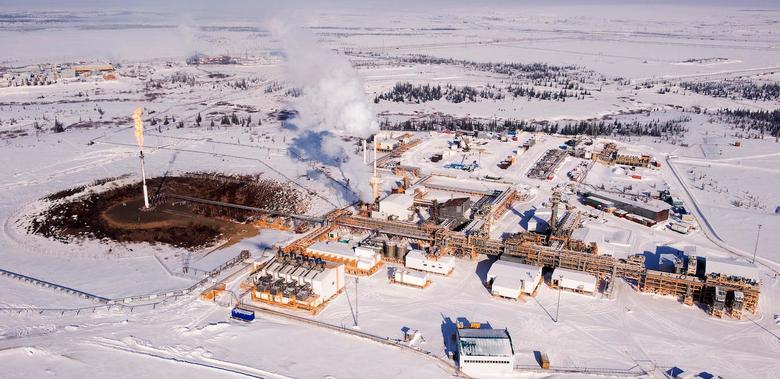
RUSSIAN OIL UP

Oil output in Russia is expected to rise to a new post-Soviet high in 2016 despite a steep decline in prices as new fields come online and producers enjoy lower costs, according to a Reuters poll of consultancies and brokerages.
The production increase in the world's biggest producer of crude will contribute to a global oil supply glut and exert continued downward pressure on oil prices which are at an 11-year low near $36 per barrel, having fallen almost 70 percent in the past 18 months.
Russia has been pumping out an average 10.72 million barrels per day in so far in January-November, a rise of around 1.3 percent compared to 2014 thanks to small producers cranking up production and an increase in the output of gas condensate.
Analysts expect production to rise by 0.56 percent to 10.78 million barrels per day in 2016, its highest annual average since the end of the Soviet era in 1991.
Russian oil production, which together with sales of natural gas accounts for half of the state budget's revenues, has been steadily rising since 1998, apart from a marginal decline in 2008.
The trend demonstrates Russia's resolve not to cut output despite calls from OPEC to independent producers to curb production to support falling prices.
Russia has said coordination with OPEC was not necessary.
"Russian producers are favoring developments that boost output in the near term, while the ruble's depreciation and Russia's oil taxation system are neutralizing the impact of lower prices and spending curbs," the International Energy Agency (IEA) said in a report.
Some analysts see risks of a decline in Russian oil output due to increasingly mature fields in western Siberia, where more than half of the country's oil production is concentrated.
"It is reasonable to expect greater declines at some mature fields in West Siberia. However, Rosneft plans more drilling at Yuganskneftegaz and the decline in its production has slowed noticeably," Andrew Reed, a principal of U.S.-based ESAI Energy, said. "As a result, ESAI Energy is not so bearish about West Siberian production."
Among others, Gazprom Neft plans to launch Messoyakha and Novoportovskoye oilfields next year, while Rosneft looks to start production at Suzun, a part of the huge Vankor group of fields in northern part of eastern Siberia.
Russia's Gazprombank believes that output may fall due to slowdown at old fields.
"For 2016, we are looking at a slight decline in liquids production on the back of brownfield depletion and low oil prices, partially compensated by the start-up of new projects by almost all Russian oil and gas companies," it said in a research note.
Analysts also say that future oil output will largely depend on government tax policy. Earlier this year, the government decided not to cut oil export duty for 2016 despite an initial plan to reduce it.
Energy Minister Alexander Novak has said crude output may start falling in 2017 if companies are hit with an increasing tax burden.
So far, the ministry expects steady to slightly higher output in 2016.
-----
More:

